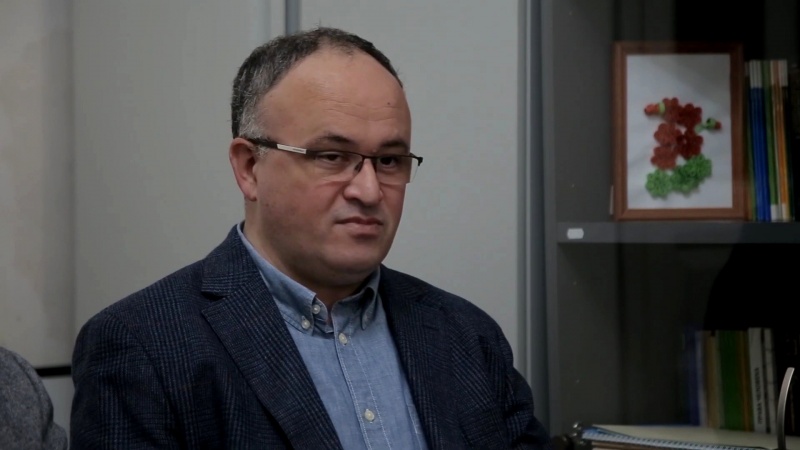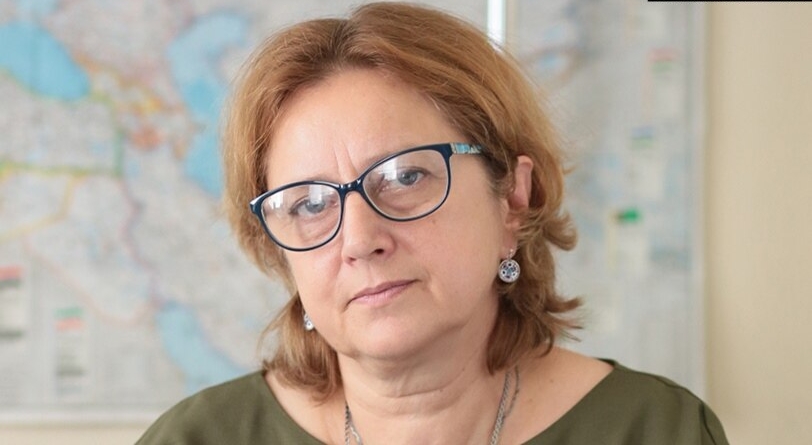New Collections of Archival Materials on Abkhazia

Vitaly Sharia | Ekho Kavkaza ― A few years back, we discussed a project focused on publishing collections of archival materials about the history of Abkhazia. This initiative, supported by the Directorate for Political Consulting of the Council of Europe and conducted in collaboration with Georgian archive staff, has already seen significant accomplishments. One notable event was the presentation at the National Library of Abkhazia of a three-volume work titled 'The Great Terror in Abkhazia (Abkhaz ASSR): 1937-1938.' This publication was overseen by Stanislav Lakoba, a professor and candidate of historical sciences. Recently, further books from this project were presented, symbolising a rare instance of successful collaboration between Abkhaz and Georgian parties.
This project is particularly important considering that during the Georgian-Abkhaz war, the State Archive of Abkhazia was burned down [by Georgian soldiers ― Ed.]
The latest presentation took place in Sukhum, within the conference hall of the V[ladislav] G. Ardzinba Museum of Military Glory. The project continues under the leadership of Anna Capello from Italy, a representative of the Directorate for Political Consulting of the Council of Europe, with Zurab Lakerbaya serving as the project director. The current phase of the project is led by Astamur Tania on the Abkhaz side and Omar Tushurashvili on the Georgian side.

Astamur Tania
Astamur Tania, historian and director of the Sukhum Money Museum, commented during the presentation:
'The materials featured here focus on the activities of church dissidents. Abkhazia became a hub for various factions of the then-fragmented Russian Orthodox Church, often in competition with each other. The collection also includes detailed lists of Abkhaz ASSR residents conscripted during World War II, from 1939 to 1945, along with records of the deceased, wounded, and prisoners of war. This may well be the first comprehensive compilation providing a full picture of this aspect of our history... Yes, the Durypsh Gathering of 1931 is included. It documents the era of collective farming in Abkhazia and the mass demonstrations of the Abkhaz people. Thanks to the timely intervention and stance of Abkhazia's leadership, particularly Nestor Apollonovich Lakoba, a massacre was averted at the gathering.'"
This revised version maintains the original meaning and details but enhances the flow and readability for an English-speaking audience.
"At the presentation, Council of Europe representatives Albina Ovcharenko and Anna Capello addressed the audience. Anna Capello specifically discussed the lists of individuals from Abkhazia drafted during World War II:
'Our records from this period are detailed and personalised, offering dates and specifics that enable readers to trace individual fates. We hope this will help some of you uncover parts of your family histories.'
Georgiy Anchabadze, a Doctor of Historical Sciences and Professor based in Tbilisi and the son of the esteemed Abkhaz historian Zurab Anchabadze [Achba ―Ed], highlighted the critical significance of a century-long period – the latter half of the 19th century and the first half of the 20th century. This era, represented in three sets of documents in the books presented, has had a profound impact on the destiny of Abkhazia:
'These three pivotal historical periods, which have largely shaped our current reality, are encapsulated in this century-spanning period, as reflected in the archival materials.'

Arda Inal-ipa
Arda Inal-ipa, a public figure and daughter of another distinguished Abkhaz historian, Shalva Inal-ipa, emphasised the importance of the ongoing project beyond Abkhazia:
'This work necessitated a dialogue between Abkhaz scholars and archive personnel. It's a conversation that has sparked considerable discussion and even criticism within both Georgian and Abkhaz societies. We recognise the challenges and complexities involved. However, I want to stress that amidst witnessing tragic events like those recently in Karabakh or the ongoing Israeli-Palestinian conflict, where dehumanisation and depersonalization are prevalent, this project represents a civilised approach to conflict. It offers a chance to continue a meaningful dialogue, the significance of which should not be underestimated globally. Achieving informational justice through this dialogue, despite the disparities between Abkhazia and Georgia, would be of immense value.'"
Stanislav Lakoba
Stanislav Lakoba remarked during the presentation:
'A notable event like the Durypsh Gathering is often remembered, though it was once discussed in hushed tones. Arvelod Erastovich (Kuprava) had extensively studied these documents. I recall him saying that he had reviewed and extracted information from them in Tbilisi, at the Institute of Marxism-Leninism. He shared some of these findings, yet often noted their publication was impossible at the time. It's gratifying that these documents and materials have finally been brought to light. While they may invite differing opinions, they are undeniably a part of our history. I would also like to highlight the excellent forewords by Gia Anchabadze and the comprehensive articles by Astamur Tania.'
Ekho Kavkaza recently reached out to Stanislav Lakoba for further comments on the project's progression. He shared:
'Three volumes focusing on the nineteenth century have now been published. One is dedicated to the ruler Mikhail, and two others delve into the Mukhadzhir [exile ―Ed] movement of 1867. While these documents are primarily known to specialists, their availability to the wider public is limited. A key feature of these works is the inclusion of both decrypted documents and their photocopies. Additionally, there is 'The Valley Where There Is No Soviet Power,' covering the repression of the Church in Soviet Abkhazia from 1921 to 1941 across four volumes. It primarily focuses on the dissidents among the church leaders, especially in Pskhu. Arguably, the most impactful volume is on the Durypsh Gathering of 1931. As you can see, the series encompasses numerous volumes.'"
This news article was published by Ekho Kavkaza and is translated from Russian.